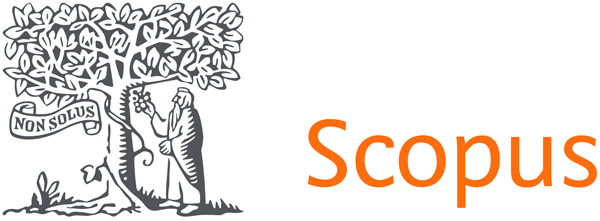Gender (In)Equality and the 2030 Agenda
Counter(?)-Hegemonic Paradigms and Oppressive Silencing
DOI:
https://doi.org/10.9771/rds.v6i2.62521Keywords:
Agenda 2030 para o Desenvolvimento Sustentável, Objetivo de Desenvolvimento Sustentável 5, Marco (Contra-)Hegemônico, Silenciamentos OpressoresAbstract
The purpose of this work is to critically analyze the gender (in)equality framework of the 2030 Agenda for Sustainable Development, mainly represented by Sustainable Development Goal 5. I seek to address two main questions: (1) What are the premises behind the representation of the ‘problem’ (i.e.: gender inequality) and the solution (i.e. gender equality) proposed by Agenda 2030 and SDG 5? (2) What are the exclusionary and oppressive silencing that result from these premises and this specific understanding of gender (in)equality? Throughout the analysis of this work, I argue that the 2030 Agenda reproduces – even if partially – premises of dominant-oppressive systems, despite their apparently counter-hegemonic narratives that promote and promise transformation at a global level. In this way, otherized people/groups, oppressed by violence related/intersected with gender, often have few choices: either they are oppressed by their own realities, or they are in a situation where their 'salvation' is imposed with dominant paradigms that create/perpetuate others forms of oppression and violence.
Downloads
References
Ahmed, S. (2012). On being included: Racism and diversity in institutional life. Duke University Press.
Anghie, A. (2004). Imperialism, Sovereignty and the Making of International Law. New York: Cambridge University Press.
Arat-Koç, S. (2012). “Invisibilized, Individualized, and Culturalized: Paradoxical Invisibility and Hyper-Visibility of Gender in Policy Making and Policy Discourse in Neoliberal Canada,” Canadian Woman Studies/Les Cahiers De La Femme, 29(3).
Aronson, B. (2017). “The White Savior Industrial Complex: A Cultural Studies Analysis of a Teacher Educator, Savior Film, and Future Teachers”, Journal of Critical Thought and Praxis, 6(3), 36-54. DOI: 10.31274/jctp-180810-83
Ashcraft, K. and Pacanowsky, M. (1996) “‘A woman's worst enemy’: Reflections on a narrative of organizational life and female identity,” Journal of Applied Communication Research, 24:3, 217-239, DOI: 10.1080/00909889609365452
Badgett, M. (2022). “A Queer Economic Lens on the SDGs,” in Bhowmick, S. and Ghosh, N. (org.) Sustainable Development in Action: Examining Global North-South Divergences. New Delhi: ORF and Global Policy Journal.
Becker, J.C. (2010). “Why Do Women Endorse Hostile and Benevolent Sexism? The Role of Salient Female Subtypes and Internalization of Sexist Contents,” Sex Roles, 62, 453–467 (2010). https://doi.org/10.1007/s11199-009-9707-4
Bento, C. (2019). O pacto da branquitude. Companhia das Letras.
Bieler, A., and Morton, A. (2004). “A critical theory route to hegemony, world order and historical change: neo-Gramscian perspectives in International Relations,” Capital & Class, 28(1), 85–113. https://doi.org/10.1177/030981680408200106
Braun, V. and Clarke, V. (2006). “Using thematic analysis in psychology”, Qualitative Research in Psychology, 3, 77-101.
Braun, V., & Clarke, V. (2019). “Reflecting on reflexive thematic analysis,” Qualitative Research in Sport, Exercise and Health, 11(4), 589–597. DOI: https://doi.org/10.1080/2159676X.2019.1628806
Burnham, P. (1991). “Neo-Gramscian Hegemony and the International Order,” Capital & Class, 15(3), 73–92. https://doi.org/10.1177/030981689104500105
Carbado, D. (2013). “Colorblind Intersectionality,” Signs: Journal of Women in Culture and Society, 38(4), 811-845.
Clarke, E. (2021). “Indigenous Women and the Risk of Reproductive Healthcare: Forced Sterilization, Genocide, and Contemporary Population Control,” J. Hum. Rights Soc. Work, 6, 144–147. DOI: https://doi.org/10.1007/s41134-020-00139-9
Cole, S. and Phillips, L. (2008) “Governing Through Accountability: Gender Equality and the United Nations”, Atlantis, 33(1), 25-36.
Collins, P. (2015). “Intersectionality's Definitional Dilemmas,” Annual Review of Sociology, 41:1, 1-20. DOI: https://doi.org/10.1146/annurev-soc-073014-112142
Cornwall, A., & Rivas, A. (2015). “From ’gender equality and “women’s empowerment” to global justice: reclaiming a transformative agenda for gender and development,” Third World Quarterly, 36(2), 396–415. http://www.jstor.org/stable/24523164
Costa, K.; Brito, L.; Coimbra, C.; Lopes, N.; Depuydt, D.; e Correia, R. (2022). “Racismo obstétrico em Portugal: Relato de experiência de um coletivo antirracista,” Forum Sociológico, 41. DOI: https://doi.org/10.4000/sociologico.10673.
Crenshaw K. (1991). “Mapping the margins: intersectionality, identity politics, and violence against women of color,” Stanford Law Rev. 43:1241–99. DOI: https://doi.org/10.2307/1229039.
Crenshaw, K. (2002). “Documento para o encontro de especialistas em aspectos da discriminação racial relativos ao gênero,” Revista Estudos Feministas, 10(1), 171–188. DOI: https://doi.org/10.1590/S0104-026X2002000100011
Cruz, J.; Almeida, T.; Ferreira, V. (2021). “Trabalho doméstico e proteção legislativa: realidade paralela e precarização laboral,” Brazilian Journal of Development, 7(5), 53081-53096. DOI: <10.34117/bjdv7n5-625>.
Cusicanqui, S. (2012). “Ch'ixinakax utxiwa: A Reflection on the Practices and Discourses of Decolonization,” South Atlantic Quarterly, 111(1): 95–109. DOI: https://doi.org/10.1215/00382876-1472612
Donovan, C., and Barnes, R. (2020). “Help-seeking among lesbian, gay, bisexual and/or transgender victims/survivors of domestic violence and abuse: The impacts of cisgendered heteronormativity and invisibility,” Journal of Sociology, 56(4), 554-570. DOI: https://doi.org/10.1177/1440783319882088
Esquivel, V. (2016) “Power and the Sustainable Development Goals: a feminist analysis,” Gender & Development, 24:1, 9-23, DOI: 10.1080/13552074.2016.1147872
Fanon, F. (1991) The Wretched of the Earth. Trans. Constance Farrington. New York: Grove Press.
Fanon, F. (2008). Black Skin, White Mask. Grove Press: New York, NY.
Favero, S. (2020). “Cisgeneridades precárias: : raça, gênero e sexualidade na contramão da política do relato,” Bagoas - Estudos Gays: Gêneros e Sexualidades, 13(20). Disponível em: https://periodicos.ufrn.br/bagoas/article/view/18675
Fukuda-Parr, S. (2019), “Keeping Out Extreme Inequality from the SDG Agenda – The Politics of Indicators,” Glob Policy, 10: 61-69. https://doi.org/10.1111/1758-5899.12602
Garry, A. (2011). “Intersectionality, Metaphors, and the Multiplicity of Gender,” Hypatia, 26(4), 826–850. http://www.jstor.org/stable/41328882
Gill, S. (1986). “Hegemony, Consensus and Trilateralism,” Review of International Studies, 12(3), 205–222. http://www.jstor.org/stable/20097082
Gonzalez, L. (2020). Por um feminismo afro-latino-americano. Rios, F. and Lima, M. (org.) Rio de Janeiro: Editora Zahar.
Gordon, L. (2021). Freedom, justice, and decolonization. Routledge.
Grogan, M. (1999). “Equity/Equality Issues of Gender, Race, and Class.” Educational Administration Quarterly, 35(4), 518–536. https://doi.org/10.1177/00131619921968743
Guerrero, M. (2003). “Patriarchal Colonialism” and Indigenism: Implications for Native Feminist Spirituality and Native Womanism,” Hypatia, 18(2), 58–69. http://www.jstor.org/stable/3811011
International Labour Organisation (2023). “Who are domestic workers”, Available at: <https://www.ilo.org/global/topics/domestic-workers/who/lang--en/index.htm>.
IPEA (2022). “Estudo do Ipea traça um perfil do trabalho doméstico no Brasil,” Instituto de Pesquisa Econômica Aplicada, Available at: <https://www.ipea.gov.br/portal/index.php?option=com_content&view=article&id=35255>.
Leal, M., Gama, S., Pereira, A., Pacheco, V., Carmo, C., e Santos, R. (2017). “A cor da dor: iniquidades raciais na atenção pré-natal e ao parto no Brasil,” Cadernos De Saúde Pública, 33. https://doi.org/10.1590/0102-311X00078816
Littler, J. (2013). “Meritocracy as Plutocracy: The Marketising of ‘Equality’ Under Neoliberalism,” new formations: a journal of culture/theory/politics 80, 52-72. https://www.muse.jhu.edu/article/529452.
Logie, C. (2023) “Sexual rights and sexual pleasure: Sustainable Development Goals and the omitted dimensions of the leave no one behind sexual health agenda,” Global Public Health, 18:1, 10.1080/17441692.2021.1953559
Lugones, M. (2020) “Colonialidade e Gênero”. In: Hollanda, H. (Org.). Pensamento Feminista hoje: perspectivas decoloniais. Rio de Janeiro, Bazar do Tempo. 52-83.
Maldonado-Torres, N. (2007), “On the Coloniality of Being: Contributions to the development of a concept,” Cultural Studies, 21(2/3), 240-270.
Maldonado-Torres, N. (2017). “On the Coloniality of Human Rights,” Revista Crítica de Ciências Sociais, 114, https://doi.org/10.4000/rccs.6793
May, V. (2015). Pursuing Intersectionality, Unsettling Dominant Imaginaries. Routledge: New York. 301p.
Melo, M. (2020, Mar., 03). “Primeira vítima do RJ era doméstica e pegou coronavírus da patroa no Leblon”, Uol, Available at: < https://noticias.uol.com.br/saude/ultimas-noticias/redacao/2020/03/19/primeira-vitima-do-rj-era-domestica-e-pegou-coronavirus-da-patroa.htm>.
Mohanty, C. (1984). “Under Western Eyes: Feminist Scholarship and Colonial Discourses”, boundary 2, 12(3), On Humanism and the University I: The Discourse of Humanism, 333-358.
Nzegwu, N. (1994). “Gender Equality in a Dual-Sex System: The Case of Onitsha,” Canadian Journal of Law & Jurisprudence, 7(1), 73-95. doi:10.1017/S0841820900002575
Parent, M., DeBlaere, C. and Moradi, B. (2013) “Approaches to Research on Intersectionality: Perspectives on Gender, LGBT, and Racial/Ethnic Identities,” Sex Roles 68, 639–645 (2013). https://doi.org/10.1007/s11199-013-0283-2
Pikramenou, N. (2020) “Intersex athletes: invisible victims in the language of gender-based violence,” Agenda, 34:2, 62-70, 10.1080/10130950.2019.1706987.
Robinson (2005). “Gramsci and Globalisation: From Nation‐State to Transnational Hegemony,” Critical Review of International Social and Political Philosophy, 8:4, 559-574, 10.1080/13698230500205243
Rottenberg, C. (2017). “Neoliberal Feminism and the Future of Human Capital,” Signs: Journal of Women in Culture and Society, 42:2, 329-348.
Ryan, C.; Ali, A.; Shawana, C. (2021). “Forced or Coerced Sterilization in Canada: An Overview of Recommendations for Moving Forward,” International Journal of Indigenous Health, 16(1), https://doi.org/10.32799/ijih.v16i1.33369.
Schucman, L.V. (2012). Entre o “encardido”, o “branco” e o “branquíssimo”: raça, hierarquia e poder na construção da branquitude paulistana. Tese de doutorado, Universidade de São Paulo. Instituto de Psicologia, 122 páginas
Smith, A. (2005). “Native American Feminism, Sovereignty, and Social Change,” Feminist Studies, 31(1), 116–132. https://doi.org/10.2307/20459010
Spade, D. (2003). “Resisting Medicine/Remodeling Gender,” Berkeley Women’s L.J., 18(1), https://doi.org/10.15779/Z38NK3645G.
Spade, D. (2013). “Intersectional Resistance and Law Reform,” Signs, 38(4), 1031–1055. https://doi.org/10.1086/669574
Stearn, W. T. (1962). “The Origin of the Male and Female Symbols of Biology,” Taxon, 11(4), 109–113. https://doi.org/10.2307/1217734
Teixeira, J. (2021). “Brazilian housemaids and COVID-19: How can they isolate if domestic work stems from racism?,” Gender Work Organ., 28(S1): 698– 707. DOI: https://doi.org/10.1111/gwao.12536.
Telleria, J. (2018) “Can we ‘transform our world’ without affecting international power relations? A political analysis of the United Nations development agenda,” Globalizations, DOI: 10.1080/14747731.2018.1467744.
Telleria, J. (2022). “Diversity vs the 2030 agenda. A deconstructive reading of the United Nations agenda for sustainable development,” Critical Social Policy, 42(4), 607–625. https://doi.org/10.1177/02610183211065699
Toldy, T. and Garraio, J. (2020). “Gender Ideology: A Discourse That Threatens Gender Equality,” in Leal Filho W., Azul A., Brandli L., Lange Salvia A., Wall T. (Eds.), Gender Equality. Encyclopedia of the UN Sustainable Development Goals (pp 1-11). Cham: Springer International Publishing.
UNGA (2015). Transforming our world : the 2030 Agenda for Sustainable Development, A/RES/70/1, Available at: https://www.refworld.org/docid/57b6e3e44.html.
United Nations (2024), “Make the SDGs a Reality,” UN Desa, Accessed in October 16th 2022, Available at: < https://sdgs.un.org/>.
Weber, H. (2017) “Politics of ‘Leaving No One Behind’: Contesting the 2030 Sustainable Development Goals Agenda,” Globalizations, 14:3, 399-414, DOI: 10.1080/14747731.2016.1275404
Zakaria, R. (2021). Against White Feminism: Notes on Disruption. W.W. Norton & Company, 258p.
Ziai, A. (2016). Development Discourse and Global History: From colonialism to the sustainable development goals. London and New York: Routledge.
Downloads
Published
How to Cite
Issue
Section
License
Copyright (c) 2024 Authors

This work is licensed under a Creative Commons Attribution 4.0 International License.
- This Journal reserves the right to direct normative, spelling and grammatical alterations in original works, with the intention of maintaining the standard worship of the language, respecting the authors' style.
- The exclusive opinions by the authors are their sole responsibility.
- The licensing rights used by the journal are the Creative Commons Attribution 4.0 International License.
- Copyright belongs exclusively to the authors. Sharing (copying and distributing the material in any medium or format) and adaptation (remixing, transforming and re-adapting the original work for all purposes, including commercial) are permitted, provided that due credit is given for the initial publication in this journal.
- Authors are permitted and encouraged to publish and distribute their work online after publication, as this can increase the impact and citation of the published work (See The Effect of Open Access).













